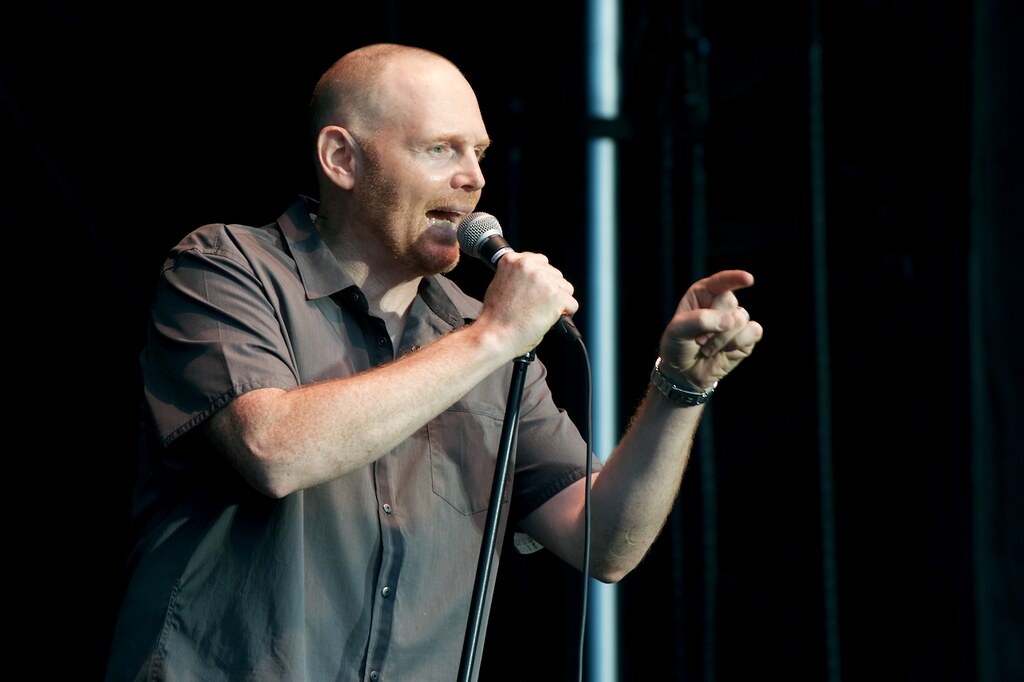CHRONICALLY ONLINE
Does SNL know its audience?
In its 50th season, the show’s host choices are inconsistent and random.
In its 50th season, the show’s host choices are inconsistent and random.


Fans of “Saturday Night Live” opened their Instagram and X feeds Jan. 10 to yet another jumpscare from the show’s producers: Dave Chappelle will be hosting SNL for the fourth time Jan. 18 — the first show of 2025.
This appearance will also mark his second time hosting since Chappelle’s controversial comedy special “The Closer” debuted on Netflix in October of 2021, which featured several jabs at the LGBTQIA+ community, specifically dismissing the existence of trans people.
Though the comedian has an extensive history of making light of queer issues, this incident launched an onslaught of public backlash and significantly diminished his popularity among Generation Z and Millennials.
“I feel like that even though I admire when SNL goes for more risks whether it be in the host or the sketches they perform, this is more so a very avoidable headache,” said Frankie Alvarez Lora X, a junior majoring in theatre. “Even though Dave Chappelle has had an incredible career, his recent statements over the trans community have really led a lot of people to turn away from his work, myself included.”
In spite of the backlash artists like Chappelle publicly receive, platforms like SNL and Netflix continue to provide them with opportunities to showcase their material.
“I think there is some double standard where other comics and celebrities who were ‘canceled’ have never been on SNL again, but for some reason, he is still able to host but also have several Netflix specials as well,” Alvarez said.
Despite his infamy among a majority of SNL’s viewership, the show’s producers made him the opener of the 50th season’s second half and as the musical guest, the producers stuck him with GloRilla, a beloved Gen Z rapper, to assuage some of the possible backlash. This marks the third time in the 50th season alone that SNL’s producers have shown that they are losing touch with the interests of the majority of their audience.
Hosts Bill Burr, with musical guest Mk.gee, and Chris Rock, with musical guest Gracie Abrams, also left young, loyal viewers tuning in out of habit or curiosity in the musical guests rather than excitement, with Michael Keaton only surviving the fire thanks to a surprising show of comedic timing and smashing performances from SNL alum, Billie Eilish.
When picking through the current season’s roster thus far, it appears as though the producers chose a slew of hosts that reflect their own allegiances within the entertainment industry. Then, they send in a chronically online intern to add a trending musical guest to balance out the lack of connection younger viewers have when tuning in to an episode in which a comedy icon of previous generations struggles to adapt to the evolving culture of online comedy.
“I think it’s a prime example of seniority over quality in the entertainment industry, especially in comedy,” said Arabella Varieur, a senior majoring in screenwriting. “SNL is mining its nostalgia-driven relevance while forgetting that certain status quos and behaviors should be left in the past.”
For example, Nov. 9’s episode featured the SNL debut of up-and-coming indie-alternative artist Mk.gee, sparking fervent excitement from his small yet vocal and passionate fanbase — and Bill Burr also hosted. Like Chappelle, he’s had a history of making unsavory jokes about the LGBTQIA+ community, with one specific instance being during a 2020 SNL monologue. As a result, the most viral moment of his 2024 appearance was introducing Mk.gee’s musical performances.
To be fair to SNL, the show has a well-documented and semi-successful history of attempting to mediate the obscurity or lack of popularity of certain hosts with more popular musical guests, and vice versa.
Though Season 50’s second show featured a relatively lesser-known comedian like Nate Bargatze — a performer most popular among older Gen Z and Millennials — older viewers like those within Gen X flocked to watch Coldplay play some hits to satisfy their nostalgia.
However, when a host is unpopular because they have a history of isolating marginalized viewers, potential audience members will simply wait for the episode to come out and be subsequently clipped into oblivion into chewable bites on social media. This way, they can avoid watching anything they don’t think they’ll find funny while also not supporting an artist who does not support their identity.
“I think the main demographic of SNL is changing to a community that no longer supports people like [Chappelle], and it’s a sad reminder that SNL can [be] and is still very tone-deaf and has a hard time finding the line between ‘edgy humor’ and just a bad person,” Alvarez said.
As an institution, SNL has the power to debut or promote new voices in both comedy and music, and yet in what is a benchmark, half-centennial season, they are choosing to reinforce industry giants of an increasingly obsolete tradition of comedy — with hosts like Chappelle receiving prime scheduling like the first episode of the new year.
“Comedy is supposed to be an art form that challenges existing hierarchies, but SNL will never be more than an echo of Hollywood performative liberal elitism,” said Josh Morton, a senior majoring in theatre with an emphasis in comedy.
This trend represents a step backward from the crucial role that scheduling plays in SNL’s unique format. Hosts and musical guests need to be paired and scheduled with as much care as a DJ reading the room at a party, watching closely for the nuances between the attendees while also having a massive breadth of knowledge about what a certain crowd might want to hear.
If your DJ set revolves around country music in a crowd full of cigarette-smoking, KAYTRANADA-loving ravers, they’re not going to stay for the finale. If your comedy set revolves around invalidating marginalized identities and your viewership is made up of generations that maintain a higher awareness regarding identity politics, they’re not going to watch your awkward, out-of-touch monologue.
Time and viewership counts can only tell how Chappelle and GloRilla’s episode will fare live and online, but based on a repeated disregard for its viewership’s demographic, SNL’s scheduling and programming decision-makers should be on the hunt for fresh blood and less transphobic hosts.
Anna Jordan is a sophomore writing about pop culture controversies in her column, “Chronically Online,” which runs every other Thursday.
We are the only independent newspaper here at USC, run at every level by students. That means we aren’t tied down by any other interests but those of readers like you: the students, faculty, staff and South Central residents that together make up the USC community.
Independence is a double-edged sword: We have a unique lens into the University’s actions and policies, and can hold powerful figures accountable when others cannot. But that also means our budget is severely limited. We’re already spread thin as we compensate the writers, photographers, artists, designers and editors whose incredible work you see in our paper; as we work to revamp and expand our digital presence, we now have additional staff making podcasts, videos, webpages, our first ever magazine and social media content, who are at risk of being unable to receive the support they deserve.
We are therefore indebted to readers like you, who, by supporting us, help keep our paper independent, free and widely accessible.
Please consider supporting us. Even $1 goes a long way in supporting our work; if you are able, you can also support us with monthly, or even annual, donations. Thank you.
This site uses cookies. By continuing to browse the site, you are agreeing to our use of cookies.
Accept settingsDo Not AcceptWe may request cookies to be set on your device. We use cookies to let us know when you visit our websites, how you interact with us, to enrich your user experience, and to customize your relationship with our website.
Click on the different category headings to find out more. You can also change some of your preferences. Note that blocking some types of cookies may impact your experience on our websites and the services we are able to offer.
These cookies are strictly necessary to provide you with services available through our website and to use some of its features.
Because these cookies are strictly necessary to deliver the website, refusing them will have impact how our site functions. You always can block or delete cookies by changing your browser settings and force blocking all cookies on this website. But this will always prompt you to accept/refuse cookies when revisiting our site.
We fully respect if you want to refuse cookies but to avoid asking you again and again kindly allow us to store a cookie for that. You are free to opt out any time or opt in for other cookies to get a better experience. If you refuse cookies we will remove all set cookies in our domain.
We provide you with a list of stored cookies on your computer in our domain so you can check what we stored. Due to security reasons we are not able to show or modify cookies from other domains. You can check these in your browser security settings.
These cookies collect information that is used either in aggregate form to help us understand how our website is being used or how effective our marketing campaigns are, or to help us customize our website and application for you in order to enhance your experience.
If you do not want that we track your visit to our site you can disable tracking in your browser here:
We also use different external services like Google Webfonts, Google Maps, and external Video providers. Since these providers may collect personal data like your IP address we allow you to block them here. Please be aware that this might heavily reduce the functionality and appearance of our site. Changes will take effect once you reload the page.
Google Webfont Settings:
Google Map Settings:
Google reCaptcha Settings:
Vimeo and Youtube video embeds:
The following cookies are also needed - You can choose if you want to allow them:
